#Interventional Cardiologist in Nagpur
Explore tagged Tumblr posts
Text

In cardiac emergencies, every second matters. Dr. Vaibhav Biyani, an esteemed intervention cardiologist in Nagpur, is known for his prompt and precise response to heart-related emergencies. With proficiency in angioplasties, thrombolysis, and device implantations, he handles high-risk cases with remarkable success. His patient-centric approach, coupled with cutting-edge technology, ensures comfort, confidence, and complete cardiac care. Whether it’s preventive consultation or urgent intervention, Dr. Biyani delivers excellence every step of the way.
#interventioncardiologistinnagpur#drvaibhavbiyani#nagpurcardiology#emergencyheartcare#angioplastyexpert#heartdoctor#cardiologyservices#nagpurinterventioncardiologist
0 notes
Text
Medinine Super-Speciality Hospital – Redefining Critical and Emergency Care in Nagpur
Introduction
Emergencies don’t wait, and when every second counts, Nagpur relies on one name—Medinine Super-Speciality Hospital. From road accidents to cardiac arrests, from pediatric crises to neurological strokes—Medinine’s emergency and critical care department is renowned for saving lives. Backed by round-the-clock readiness, advanced trauma infrastructure, and highly skilled specialists, Medinine is setting new standards in emergency medical services in Central India.
Round-the-Clock Emergency Readiness
What makes Medinine truly special is its 24/7 emergency department, designed with precision and preparedness. Whether it’s 2 a.m. or a busy afternoon, the ER is always staffed with:
Trained emergency physicians
Certified trauma nurses
On-call specialists
Radiologists and lab technicians for immediate diagnostics
The ER is supported by a triage system that ensures the most critical cases get immediate care. Advanced monitoring systems and resuscitation bays are fully equipped to handle multiple emergencies simultaneously.
Specialized ICUs for Every Need
Medinine doesn’t take a one-size-fits-all approach to critical care. They offer dedicated ICU units for various types of patients:
Medical ICU (MICU)
Surgical ICU (SICU)
Cardiac ICU (CCU)
Pediatric ICU (PICU)
Neonatal ICU (NICU)
Each ICU is monitored 24/7 by intensivists and nursing staff trained in critical care protocols. With strict infection control practices and the latest in life-support technologies, patients receive round-the-clock supervision and specialized treatment.
Rapid Diagnostics and Instant Treatment
In emergencies, time is everything. That’s why Medinine has in-house diagnostic labs and radiology departments that work non-stop. The moment a patient is brought in:
Scans like MRI, CT, and X-ray are prioritized
Blood work and pathology results are expedited
Cardiac monitors and portable ultrasounds are deployed instantly
This rapid response system allows doctors to diagnose within minutes—and begin life-saving treatment without delay.
Expert Critical Care Team
Behind every successful recovery story is a team that works tirelessly. Medinine’s critical care specialists are experts in managing patients with complex conditions. This includes:
Cardiologists for heart emergencies
Neurologists for strokes and seizures
Pulmonologists for respiratory failure
Anesthesiologists and trauma surgeons
They follow evidence-based protocols and hold daily case reviews to ensure optimal care for every patient.
Patient Recovery and Family Support
Medinine understands that critical care impacts not just the patient but also the family. That’s why they provide:
Family counseling and emotional support
Regular updates by treating doctors
Safe and clean waiting areas
On-site accommodation for family members of critical patients
Moreover, the hospital’s rehabilitation team supports patient recovery post-ICU through physical therapy, psychological counseling, and diet planning.
Emergency Ambulance Services with Life Support
The hospital’s ambulance network is one of the most reliable in Nagpur. Each ambulance is fitted with:
Advanced Cardiac Life Support (ACLS) systems
Trained paramedics
GPS for optimized routing
Real-time communication with ER doctors
This ensures continuity of care right from the patient’s doorstep to the emergency room.
Case Study: A Stroke Saved in Time
Just last year, a 68-year-old man arrived at Medinine within 20 minutes of a stroke. Thanks to the hospital’s Stroke Code Protocol, a neurologist, radiologist, and ICU team were ready before arrival. A CT scan confirmed an ischemic stroke, and tPA (clot-busting drug) was administered within 30 minutes—saving the man from lifelong disability.
This is not a one-off story. Medinine’s structured emergency response system has saved countless lives through such timely interventions.
Conclusion: Trust Medinine When Every Second Counts
When it comes to emergencies, hesitation can cost lives. Medinine Super-Speciality Hospital has proven time and again that it can handle the most critical medical situations with unmatched professionalism and compassion.
Whether you’re dealing with a life-threatening injury, a sudden illness, or a loved one in distress, trust Medinine to act fast, act right, and save lives.
FAQs
1. Is Medinine equipped for pediatric emergencies? Yes, the hospital has a Pediatric ICU (PICU) with neonatologists and pediatric emergency specialists on duty 24/7.
2. Can Medinine handle trauma and accident cases? Absolutely. The trauma center is fully equipped for high-impact injuries, including fractures, head injuries, and internal bleeding.
3. What is the response time for Medinine ambulances? Typically, ambulances reach within 20–30 minutes in urban Nagpur. Emergency protocols ensure zero delays in treatment upon arrival.
4. Do they offer post-ICU recovery care? Yes, Medinine has a dedicated rehabilitation team for physiotherapy, mental health counseling, and long-term recovery planning.
5. Is Medinine emergency care affordable? Yes, with transparent billing, government insurance tie-ups, and EMI options, critical care remains accessible to all.
0 notes
Text
Best Heart Hospital in Nagpur.
Your Heart Deserves the Best: Why Asha Hospital Is the Top Choice for Cardiac Care in Nagpur
When it comes to your heart, nothing but the best will do. Whether you're seeking preventive care, a diagnosis, or advanced cardiac treatment, finding the right hospital can make all the difference. In Nagpur, a city that continues to grow in both population and medical advancements, there are many options—but one name consistently stands out: Asha Hospital, recognized by many as the best heart hospital in Nagpur.
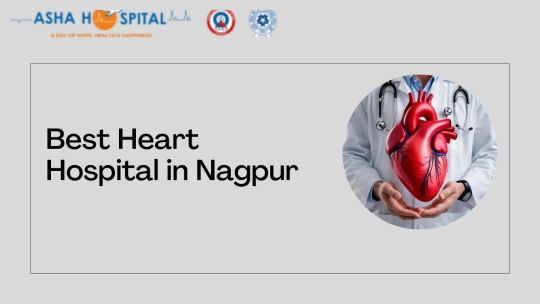
A Personal Touch in Every Beat
Heart health is not just about machines, medicines, or surgeries—it's about people. At Asha Hospital, we take pride in treating every patient like family. Our team of cardiologists, surgeons, nurses, and support staff are known not only for their expertise but for their compassion. Here, your journey to recovery is supported at every step with kindness and personal attention.
From the moment you walk into the hospital to the time you leave, our focus remains on your comfort, trust, and well-being.
What Makes a Hospital the Best?
Being the best heart hospital in Nagpur is not a title we take lightly. It’s earned through a combination of medical excellence, modern infrastructure, advanced diagnostic tools, and above all, patient satisfaction. Asha Hospital checks all these boxes and more.
Let’s explore what truly sets us apart:
1. Experienced and Renowned Cardiologists
At Asha Hospital, our cardiac team includes some of the most respected and experienced heart specialists in the region. With decades of collective experience in treating complex heart conditions, our doctors are not just skilled clinicians—they are leaders in their field.
Our approach is evidence-based, yet personalized. Every patient receives a treatment plan tailored to their unique condition, lifestyle, and goals.
2. Advanced Cardiac Technology
We believe the best care is a blend of expertise and innovation. That’s why our hospital is equipped with:
State-of-the-art Cath Lab for angiography and angioplasty
3D Echocardiography & Cardiac MRI
24/7 ECG, Holter Monitoring & Stress Testing
Emergency cardiac care unit with ICU support
These tools help us diagnose heart conditions accurately and treat them effectively.
3. Comprehensive Cardiac Services Under One Roof
Unlike other hospitals that offer only specific heart treatments, Asha Hospital provides complete cardiac care—all in one place. Our services include:
Preventive heart checkups
Treatment for hypertension and cholesterol
Interventional cardiology (angioplasty, stents)
Electrophysiology (pacemakers, defibrillators)
Open heart surgeries
Cardiac rehabilitation programs
Whether it’s a minor concern or a major procedure, we’re equipped to handle it all with confidence and care.
Heart Hospital in Nagpur You Can Trust
In a city filled with options, what makes Asha Hospital the heart hospital in Nagpur that people return to, time and again? The answer lies in trust.
Over the years, we’ve treated thousands of patients not just from Nagpur but from surrounding regions as well. Many come to us after trying multiple options, and leave with renewed hope and improved health.
4. Focus on Early Detection and Prevention
One of the reasons heart diseases often go unnoticed is because their symptoms can be subtle. At Asha Hospital, we emphasize the importance of early detection through regular checkups. Our preventive cardiac programs are especially designed for:
Individuals with a family history of heart disease
People with diabetes, high BP, or obesity
Working professionals dealing with stress and sedentary lifestyles
Senior citizens and post-menopausal women
Early detection not only saves lives—it helps maintain quality of life.
5. Emergency Heart Care That Saves Lives
Heart attacks don’t wait—and neither do we. Our 24/7 emergency cardiac team is always ready to respond. The “golden hour” after a heart attack is critical, and timely intervention can mean the difference between life and death. That’s why we have:
On-call cardiac specialists
Rapid-response ambulance services
Immediate ECG and angioplasty capabilities
At Asha Hospital, saving lives is not a slogan—it’s a responsibility we honor every day.
Patient Stories That Inspire
We measure success not by numbers, but by lives changed. Here are just a few stories that make us proud:
🧓 Mr. Deshmukh, a retired teacher from Wardha, came to us with severe chest pain. After a quick diagnosis and immediate angioplasty, he was walking again in just 3 days. Today, he leads his local senior citizens' club.
👩⚕️ Mrs. Sharma, a mother of two, had a congenital heart defect that went unnoticed for years. Our team detected the issue during a routine checkup, and she underwent surgery with zero complications. She now runs marathons.
These stories remind us why we do what we do.
Heart Health Awareness: We Educate and Empower
Asha Hospital doesn’t just treat patients—we educate communities. Through our regular heart health camps, webinars, and awareness drives, we help people understand the risks of heart disease and how to prevent it.
Our recent Healthy Heart for Every Home initiative reached over 5,000 families in Nagpur, offering free heart checkups and lifestyle guidance. We believe knowledge is the first step to healing.
The Future of Heart Care in Nagpur
Nagpur is growing—and so are the demands on its healthcare system. Asha Hospital is constantly evolving to meet these needs. From introducing robot-assisted heart procedures to offering digital heart monitoring via mobile apps, we’re embracing the future.
Our commitment is not just to keep up with global standards, but to set new ones—right here in central India.
Visit Us—Because Your Heart Deserves Hope
Your heart beats for your dreams, your family, and your future. Don’t take it for granted. If you or your loved ones are experiencing symptoms like chest pain, breathlessness, irregular heartbeat, or fatigue—get it checked today.
Visit Asha Hospital, the most trusted heart hospital in Nagpur, and take the first step towards a healthier tomorrow.
0 notes
Text
Best Cardiologist in Mumbai: Top Specialists for Heart Care
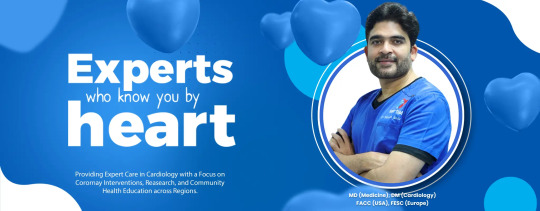
Did you know that cardiovascular diseases account for nearly 25% of all deaths in India?
With heart disease on the rise, having access to the best cardiologist doctor in Mumbai can be a lifesaver. Whether you need routine heart care or a complex procedure, Mumbai is home to some of the finest cardiologists in the country.
When it comes to heart health, finding the best cardiologist doctor in Mumbai is crucial for timely diagnosis, effective treatment, and long-term care.
Mumbai is home to some of India’s most experienced and highly skilled cardiologists, offering advanced treatments for heart diseases, including angioplasty, bypass surgery, pacemaker implantation, and heart transplants.
Whether you need preventive cardiology or complex cardiac interventions, the city’s top cardiologists provide world-class medical expertise.
In this article, we will explore the leading names in cardiology, their specialties, and how to choose the best cardiologist doctor in Mumbai for your heart care needs.
Importance of Choosing Best Cardiologist in Mumbai
Heart diseases can be life-threatening if not treated properly. Whether it is a routine check-up, managing hypertension, or undergoing complex cardiac procedures, selecting a skilled and experienced cardiologist can make a significant difference in patient outcomes.
When choosing a cardiologist, consider the following factors:
Qualifications and Experience: A cardiologist with vast experience and high qualifications is more likely to provide accurate diagnoses and effective treatments.
Specialization: Some cardiologists specialize in interventional procedures, while others focus on heart failure management or preventive cardiology.
Hospital Affiliation: Reputed hospitals in Mumbai, such as Lilavati, Kokilaben Dhirubhai Ambani Hospital, and Sir H.N. Reliance Foundation Hospital, house some of the best cardiologists.
Patient Reviews and Success Rate: The feedback from previous patients and the doctor’s success rate in performing cardiac procedures are essential considerations.
Best Cardiologist in Mumbai
Here is a list of some of the best cardiologists in Mumbai known for their expertise, patient care, and contributions to the field of cardiology.
1. Dr. Manish Juneja
Hospital Affiliation: Rhythm Hospitals, Nagpur
Specialization: Cardiac surgery, Bypass Surgery, Valve Replacement
Experience: Over 10 years
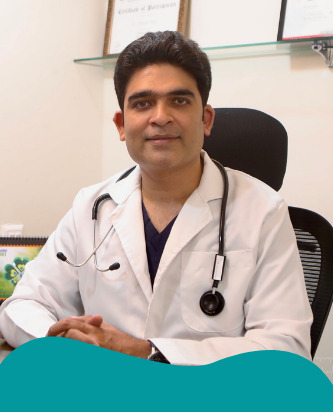
Dr. Manish Juneja is a highly skilled and experienced cardiologist known for his expertise in interventional cardiology, heart failure management, and preventive cardiology. With years of practice, he has successfully treated numerous patients suffering from complex heart conditions, including coronary artery disease, arrhythmias, and hypertension.
To learn more about his services or to book an appointment, visit Dr. Manish Juneja’s official website.
2. Dr. Ajay Kaul
Hospital Affiliation: Fortis Hospital, Mulund
Specialization: Cardiothoracic and Vascular Surgery, Heart Transplant, Minimally Invasive Cardiac Surgery
Experience: Over 30 years
Dr. Ajay Kaul is an accomplished cardiac surgeon specializing in bypass surgery and heart transplants. He has conducted over 10,000 cardiac procedures and is known for his expertise in minimally invasive surgeries.

3. Dr. Suresh V. Vijan
Hospital Affiliation: Lilavati Hospital, Mumbai
Specialization: Interventional Cardiology, Angioplasty, Stenting
Experience: Over 35 years
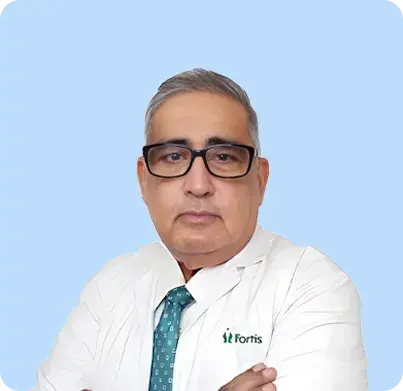
Dr. Vijan is one of Mumbai’s top interventional cardiologists, performing thousands of angioplasties and stent placements. His expertise in treating complex coronary artery diseases has helped numerous patients avoid open-heart surgery.
4. Dr. Nitin M. Samant
Hospital Affiliation: Jaslok Hospital & Research Centre, Mumbai
Specialization: Pediatric Cardiology, Adult Congenital Heart Disease, Heart Failure Management
Experience: Over 25 years

Dr. Samant specializes in congenital heart diseases in children and adults. He is a leading expert in managing heart failure and conducting interventions to improve cardiac function.
5. Dr. Bimal Chhajer
Hospital Affiliation: SAAOL Heart Center, Mumbai
Specialization: Preventive Cardiology, Lifestyle Modification for Heart Disease
Experience: Over 30 years

Dr. Chhajer is known for his non-invasive approach to treating heart diseases through lifestyle and diet modifications. He is an advocate of natural treatments and reversal of coronary artery disease without surgery.
6. Dr. Ashwin B. Mehta
Hospital Affiliation: Jaslok Hospital, Mumbai
Specialization: Interventional Cardiology, Arrhythmia Treatment
Experience: Over 40 years
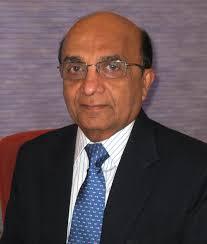
Dr. Mehta is a pioneer in interventional cardiology in India. He has performed thousands of angioplasties and introduced several advanced procedures to treat heart diseases effectively.
What to Expect During a Cardiologist Visit
Visiting a cardiologist for the first time can feel overwhelming, but understanding what to expect can help ease any anxiety. Whether it's a routine heart check-up or a consultation for a specific heart condition, a cardiologist visit typically includes the following steps:
1. Initial Consultation & Medical History Review
Your cardiologist will begin by discussing: Your Symptoms: Chest pain, breathlessness, palpitations, dizziness, or fatigue. Medical History: Past illnesses, surgeries, and any heart-related issues. Family History: Heart disease, diabetes, high blood pressure, or stroke in your family. Lifestyle Factors: Diet, exercise habits, smoking, alcohol consumption, and stress levels.
Tip: Be honest about your lifestyle and symptoms to help the doctor make an accurate diagnosis.
2. Physical Examination
The doctor will check: Blood Pressure & Pulse Rate – To assess your heart’s function. Heart & Lung Sounds – Using a stethoscope to detect irregularities. Swelling in Legs or Abdomen – Signs of heart failure or poor circulation.
3. Diagnostic Tests (If Needed)
Depending on your symptoms, the doctor may recommend tests such as:
Electrocardiogram (ECG/EKG) – Records heart rhythms and detects abnormalities. Echocardiogram (ECHO) – Uses ultrasound to check heart structure and function. Stress Test (TMT) – Measures how your heart works during physical exertion. Angiography – Detects blockages in coronary arteries. Holter Monitor – A portable ECG worn for 24-48 hours to track irregular heartbeats. Blood Tests – Checks cholesterol, sugar, and cardiac markers like troponin levels.
4. Diagnosis & Treatment Plan
Once the tests are reviewed, the cardiologist will: Explain the findings in detail. Discuss treatment options, such as lifestyle changes, medications, or procedures. Recommend follow-up visits for ongoing heart care.
5. Lifestyle & Preventive Care Advice
A cardiologist will also guide you on: Heart-Healthy Diet – Low sodium, high fiber, and good fats. Exercise Routine – Walking, yoga, or supervised workouts. Quitting Smoking & Alcohol – Reduces heart disease risk. Stress Management – Meditation and relaxation techniques.
6. Follow-Up Appointments
Depending on your condition, you may need regular check-ups to monitor heart health and medication effectiveness.
Follow-up visits may be scheduled: Every 3–6 months for routine heart check-ups. More frequently if you have ongoing heart disease or require treatment adjustments.
Advanced Cardiac Treatments Available in Mumbai
Mumbai is a hub for advanced cardiac care, offering state-of-the-art treatment options for various heart conditions. Some of the latest procedures available include:
Coronary Angioplasty and Stenting – A minimally invasive procedure to open blocked arteries.
Bypass Surgery (CABG) – A surgical procedure to improve blood flow to the heart.
Heart Valve Replacement – Repairing or replacing damaged heart valves.
Pacemaker Implantation – Used to regulate abnormal heart rhythms.
Heart Transplantation – For patients with end-stage heart failure.
Minimally Invasive Cardiac Surgery – Advanced techniques to reduce surgical trauma and recovery time.
How to Maintain a Healthy Heart
Apart from consulting the best cardiologists, it is crucial to follow a heart-healthy lifestyle to prevent cardiovascular diseases. Here are some essential tips:
Eat a Balanced Diet: Consume more fruits, vegetables, whole grains, and lean proteins while avoiding saturated fats and processed foods.
Regular Exercise: Engage in at least 30 minutes of moderate physical activity daily.
Quit Smoking and Limit Alcohol Intake: Smoking and excessive alcohol consumption increase the risk of heart diseases.
Manage Stress: Practice yoga, meditation, and relaxation techniques to reduce stress.
Regular Health Check-ups: Monitor blood pressure, cholesterol levels, and blood sugar to detect early signs of heart disease.
Conclusion
Mumbai has some of the best cardiologists in India, providing world-class heart care and advanced treatments. Whether you need preventive care, interventional procedures, or heart surgery, the city offers top-notch medical services. Choosing the best cardiologist doctor in Mumbai and adopting a heart-healthy lifestyle can help prevent and manage heart diseases effectively.
If you or a loved one is experiencing heart-related symptoms, consult a cardiologist at the earliest to ensure timely diagnosis and treatment.
0 notes
Text
Best Hospital in Nagpur: A Comprehensive Guide
When it comes to healthcare, finding the best hospital in Nagpur is crucial for ensuring top-notch medical services. Whether you’re seeking routine checkups, specialized treatments, or emergency care, knowing the features and facilities of the best hospital in Nagpur can make all the difference. Here’s a detailed guide to help you understand what makes a hospital stand out and why Nagpur is home to some of the finest medical institutions.
Best Hospital in Nagpur: What to Look For
When searching for the best hospital in Nagpur, it’s essential to consider key factors that define quality healthcare. These include:
Advanced Infrastructure: The best hospital in Nagpur will have state-of-the-art equipment and facilities to provide accurate diagnoses and effective treatments.
Qualified Medical Staff: A skilled team of doctors, nurses, and specialists ensures that patients receive the best possible care.
Comprehensive Services: From general medicine to specialized departments like cardiology and oncology, the best hospital in Nagpur offers a wide range of services under one roof.
Patient-Centric Care: Prioritizing patient comfort and well-being is a hallmark of the best hospital in Nagpur.
Why Nagpur is a Hub for Quality Healthcare
Nagpur has emerged as a healthcare destination due to its strategic location and rapid development in medical facilities. The best hospital in Nagpur is equipped with cutting-edge technology, making it a preferred choice for patients from nearby cities and states. Additionally, the city’s hospitals are known for their affordability without compromising on quality.
Specialized Departments at the Best Hospital in Nagpur
The best hospital in Nagpur is equipped to handle a variety of medical needs. Here are some specialized departments you can expect:
Cardiology
Cardiac care is one of the most sought-after services at the best hospital in Nagpur. Advanced diagnostic tools, experienced cardiologists, and modern surgical techniques ensure excellent outcomes for patients with heart conditions.
Oncology
Cancer treatment requires a multidisciplinary approach. The best hospital in Nagpur offers chemotherapy, radiation therapy, and surgical interventions, all under one roof.
Pediatrics
Pediatric care at the best hospital in Nagpur focuses on the physical and emotional well-being of children. From neonatal care to adolescent health, these facilities cater to all age groups.
Orthopedics
For bone and joint issues, the best hospital in Nagpur provides cutting-edge treatments, including joint replacement surgeries and rehabilitation programs.
Neurology
Neurological disorders demand specialized care. The best hospital in Nagpur is equipped with advanced imaging techniques and expert neurologists to treat conditions like strokes, epilepsy, and brain injuries.
Emergency Services at the Best Hospital in Nagpur
Emergencies require immediate attention, and the best hospital in Nagpur is prepared for all kinds of situations. With 24/7 emergency rooms, ambulance services, and trauma care units, these hospitals ensure prompt and effective care during critical times.
Technology and Innovation
The best hospital in Nagpur leverages technology to enhance patient outcomes. From robotic surgeries to telemedicine services, these innovations make healthcare more accessible and effective. Advanced diagnostic tools like MRI and CT scans are integral to accurate and timely diagnoses.
Affordability and Accessibility
While the best hospital in Nagpur offers world-class services, it also ensures that treatments remain affordable. Many hospitals provide financial assistance and insurance support, making quality healthcare accessible to all sections of society.
Choosing the Best Hospital in Nagpur for Your Needs
Selecting the best hospital in Nagpur depends on your specific healthcare requirements. Here are some tips to help you make an informed decision:
Research and Reviews: Look for patient testimonials and reviews online to gauge the hospital’s reputation.
Visit the Facility: A visit can help you assess the infrastructure and interact with the staff.
Consult Experts: Seek recommendations from your family doctor or specialists for the best hospital in Nagpur.
Check Accreditations: Ensure the hospital has necessary certifications and accreditations, reflecting its commitment to quality.
Best Hospital in Nagpur: Patient Experience
The best hospital in Nagpur prioritizes the overall patient experience. From streamlined admission processes to post-treatment follow-ups, every aspect is designed to enhance patient satisfaction. Friendly staff, clean facilities, and prompt assistance further contribute to a positive healthcare journey.
Supporting Healthcare in Nagpur
Nagpur’s healthcare ecosystem is supported by numerous medical colleges, research institutions, and skilled professionals. This collaborative approach ensures that the best hospital in Nagpur continues to set benchmarks in quality and innovation.
Future of Healthcare in Nagpur
With ongoing advancements in medical technology and infrastructure, the best hospital in Nagpur is poised to achieve greater heights. Upcoming projects and initiatives aim to make healthcare even more patient-focused and efficient.
Conclusion
Choosing the best hospital in Nagpur is a critical decision that impacts your health and well-being. By considering factors like infrastructure, medical expertise, and patient care, you can ensure access to top-quality healthcare. Nagpur’s hospitals are a testament to the city’s commitment to providing exceptional medical services. Whether it’s routine care or specialized treatment, the best hospital in Nagpur stands ready to serve with excellence and compassion.
0 notes
Text
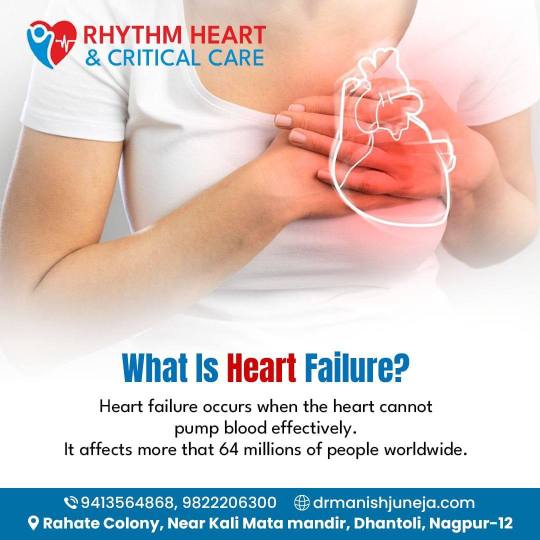
Why Rhythm Heart and Critical Care Could Be the Perfect Choice for You in Nagpur
"Best Heart Hospital in Nagpur"
Visit our hospital in Nagpur, the city's best heart hospital! 🏥❤️
📍 Address: 3rd Floor, Plot No. 19, Opposite Ramkrishna Math Road, Beside Kalimata Temple, Rahate Colony, Dhantoli, Nagpur, Maharashtra 440012 <— Click Here For Direction
⏰ Hours: Open 24 hours
📞 Phone: 094135 64868
Searching for the best heart care in Nagpur? Your heart is your most vital organ, and ensuring its health is paramount. At Rhythm Heart and Critical Care, we understand this and strive to provide exceptional cardiac care tailored to your individual needs.
Why Choose Rhythm Heart and Critical Care, known for excellence in heart care in Nagpur and Vidarbha
Experienced & Renowned Team: Led by Dr. Manish Juneja, a highly skilled and experienced cardiologist with over 25 years of experience, our team is dedicated to delivering the highest quality care.
Comprehensive Services: From preventive cardiology and diagnostics to advanced interventions and critical care, we offer a full spectrum of cardiac services under one roof.
State-of-the-Art Technology: We are equipped with the latest technology and equipment to provide accurate diagnoses and effective treatments.
Affordable Care: We believe that everyone deserves access to quality cardiac care, which is why we offer competitive pricing and strive to make our services accessible.
Collapse
Patient-Centric Approach: We prioritize clear communication, personalized treatment plans, and a compassionate approach to ensure your comfort and well-being throughout your journey.
Our Services:
Non-invasive Cardiology: We offer a comprehensive range of non-invasive tests, including ECGs, Echocardiograms, Holter monitoring, and stress tests, to diagnose and monitor heart conditions.
Interventional Cardiology: Our experienced cardiologists perform advanced procedures like angioplasty and stenting to open blocked arteries and improve blood flow to the heart.
Cardiac Rehabilitation: Our dedicated team helps patients recover from cardiac events and improve their overall cardiovascular health through exercise, education, and lifestyle modifications.
Critical Care: We provide comprehensive critical care services for patients experiencing life-threatening cardiac emergencies.
The Rhythm Advantage: Technology at Your Service
At Rhythm Heart and Critical Care, we believe in staying at the forefront of technological advancements. We utilize advanced equipment to provide accurate and efficient diagnoses and treatments, including:
Digital Echocardiography: This technology offers detailed images of your heart structure and function.
Advanced Catheterization Lab: Our state-of-the-art cath lab provides a safe and comfortable environment for interventional procedures.
Holter Monitoring: This painless test allows us to monitor your heart rhythm over a 24-hour period.
Your Heart Deserves the Best: Schedule Your Consultation Today
Don't wait until a problem arises. Taking charge of your heart health is crucial for a long and healthy life. Schedule a consultation with our experienced cardiologists at Rhythm Heart and Critical Care today. We are proud to be the best heart hospital in Nagpur, dedicated to walking with you on your path to excellent heart health>Contact Us:
Website : https://rhythmhospitals.com/
Location : Nagpur
Phone: 094135 64868
0 notes
Text
Heart-Healthy Habits for Busy Professionals: Advice from Dr. Manish Juneja
Heart-Healthy Habits for Busy Professionals: Advice from Dr. Manish Juneja. It is unrealistic to have the time and energy to eat well, exercise, and relax properly in today's fast-paced world.
Nevertheless, heart health is critical to busy professionals who face high levels of stress and long working hours. To assist you in striking a balance between working hard and taking good care of your heart, who better to turn to than Dr. Manish Juneja, a top cardiologist in Nagpur. He gives us some ideas on building heart-healthy habits in a busy life based on his experiences.
Exercise regularity: Dr. Juneja would recommend members of the public to make physical activity a priority on a daily basis. At a minimum, you should exercise for at least thirty minutes at moderate intensity on most days of the week. This may entail fast walking, cycling, swimming, or taking the stairways at work to the workplace instead of the elevator. It is worthwhile to find several brief periods throughout the day to set aside your schedule for your heart.
However, when it comes to nutrition, Dr. Juneja recommend busy professionals make smart choices regardless of time availability. Make sure to include nutrient-dense foods such as fruits, vegetables, whole grains, lean proteins and healthy fats. Pre-make nutritious meals and snacks that are easy to take along on your busy dayᅳlike a homemade salad, a smoothie or cut veggies with hummus to dip. Try to avoid processed foods, like fast food, that are high in unhealthy fats, sodium and added sugars.
Manage stress effectively. Unfortunately, most professionals have stress as their constant companion, which is extremely bad for your heart. According to Dr. Juneja, you need to start implementing stress-reducing practices, including deep breaths, meditation, yoga, or just spending more time in nature, into your daily routine. Moreover, engaging in your hobbies or meeting your loved ones helps to reduce the destructive impact of stress on your heart.
Make sure to prioritize sleep: Sleep is indispensable for heart health, and, nevertheless, most working people are sleep-deprived. Dr. Juneja recommends getting 7-9 hours of decent quality sleep per night to provide your body and mind with enough rest. Furthermore, form a consistent sleep timetable, build a calming bedtime ritual, and guarantee that the sleeping environment is conducive to relaxation. Sufficient sleep is an essential aspect of a healthy lifestyle and contributes to your heart's optimal performance.
Schedule Regular Health Check-ups - busy schedules are never enough reasons to skimp on regular health check-ups, including cardiovascular screenings. According to Dr. Juneja, one must visit their healthcare provider at least annually to check on the heart condition and any possible risk factors,. In most cases, early detection and intervention make a difference on heart-related issues.
To sum up, irrespective of how demanding your professional life is, you need to ensure that you put your heart health first. Dr. Manish Juneja's expert recommendations, as well as these heart-healthy practices, will help you make healthier decisions daily and stay healthy in your professional and personal life. Keep in mind, a little adjustment can have a huge impact on your heart health.
for more details click here:-
#HeartHealth#HealthyLiving#HeartHealthyHabits#BusyProfessionalHealth#WorkLifeBalance#HealthyEating#ExerciseRoutine#StressManagement#SleepWell#HealthyLifestyle#WellnessWednesday#FitLife#CardiovascularHealth#HeartAwareness#SelfCareSunday
0 notes
Text
What are the stages of heart failure?
Heart failure is a progressive condition that develops gradually over time, often passing through different stages as it worsens. Understanding these stages is essential for proper management and treatment of heart failure. Generally, heart failure is categorized into four stages according to the American College of Cardiology (ACC) and the American Heart Association (AHA):
Stage A - High Risk for Heart Failure: In this stage, individuals are at high risk of developing heart failure due to certain risk factors, such as high blood pressure, coronary artery disease, diabetes, obesity, or a family history of heart disease. Prevention strategies, including lifestyle modifications and managing risk factors, are crucial at this stage.
Stage B - Structural Heart Disease without Symptoms: Stage B involves structural changes in the heart, such as a previous heart attack, valve disease, or other conditions affecting heart function, but without signs or symptoms of heart failure. Monitoring and treatment to prevent the progression of heart failure are initiated in this stage.
Stage C - Heart Failure with Prior or Current Symptoms: At this stage, individuals exhibit symptoms of heart failure, such as fatigue, shortness of breath, swelling in the legs, and reduced ability to exercise. Treatment involves medications, lifestyle modifications, and interventions to manage symptoms and slow the disease progression.
Stage D - Advanced Heart Failure: This stage represents severe and advanced heart failure, where symptoms persist despite optimal medical therapy. Patients in stage D may require specialized interventions like mechanical circulatory support, heart transplant, or palliative care to improve quality of life.
These stages serve as a guide for cardiologists near Lokmat Square, Dhantoli, Nagpur to assess the progression of heart failure and tailor treatment plans accordingly. Early identification and appropriate management of heart failure stages can significantly improve outcomes and quality of life for affected individuals. Regular monitoring and collaboration with healthcare providers are crucial for individuals at risk or living with heart failure to receive timely interventions and care.
0 notes
Text
Non Invasive Cardiology | Best Cardiac Hospital in Nagpur
Noninvasive cardiology is cardiology that doesn’t require the cutting or piercing of your skin. Usually, this focuses on the use of procedures to diagnose heart problems.
➡ Non-Invasive Tests and Procedures. ➡ Cardiac Computed Tomography. ➡ Chest X-Ray. ➡ Echocardiogram (Echo) ➡ Electrocardiogram (ECG or EKG) ➡ Exercise Stress Test. ➡ Holter Monitor. ➡ Magnetic Resonance Imaging (MRI)
Questions regarding the scheduling procedures can be directed to Non Invasive Cardiology Specialist Dr.rishilohiya.
#Best Cardiologist in Nagpur#Interventional Cardiologist in Nagpur#Best Cardiac Surgeon in Nagpur#invasive cardiology#Non Invasive Cardiology#Best Cardiac Hospital in Nagpur#Best Heart Specialist Hospital in Nagpur#Top 10 Cardiologist in Nagpur#Best Heart Specialist in Nagpur#Best Cardiologist in Maharashtra#Top 10 Cardiologist in Maharashtra
0 notes
Text
‘Telemedicine is new normal in healthcare, let’s accept it’ | Nagpur News
‘Telemedicine is new normal in healthcare, let’s accept it’ | Nagpur News
As Covid-19 outbreak began in India, Indian Council of Medical Research (ICMR) allowed telemedicine practice for doctors in the country. As we are moving towards a new normal, telemedicine is going to be a part of the new healthcare system, said Dr Amar Amale, interventional cardiologist at Arneja Heart Institute, while talking to TOI. According to him, people and doctors should accept it just…
View On WordPress
0 notes
Text

Looking for a skilled Intervention Cardiologist in Nagpur? Dr. Vaibhav Biyani is a trusted expert in treating heart conditions with advanced interventional techniques. With years of experience and cutting-edge technology, Dr. Biyani specializes in procedures like angioplasty, stent placement, and other life-saving treatments for heart patients. Whether you're dealing with chest pain, blockages, or cardiovascular emergencies, trust Dr. Vaibhav Biyani to provide personalized and effective care.
Schedule your consultation today and prioritize your heart health!
#interventioncardiologist#cardiologistnagpur#hearthealth#angioplasty#stentplacement#drvaibhavbiyani#nagpurheartcare
0 notes
Text
Why VIVEKA Hospitals Is One Of The Best Hospitals In Nagpur
Over the last few years, the healthcare industry has boomed at an outstanding pace. Gone are the days when people with different ailments had to visit different sort of hospitals for treatment - one with a Neuro-problem had to visit a neurosurgeon, one with a skin problem had to visit a dermatologist, one with heart disease had to visit a cardiologist separately. With the upcoming of the multi-speciality hospital, this is no more a scene in many developed and developing countries. The best hospitals in India are essentially super-speciality in nature. And so is in Nagpur.
Finding the Best Hospital in India is important as it is the center where you will be receiving your treatment and it is imperative to make sure that the doctors, surgeons, and other medical staff are skilled, experienced, and well-trained. This is the most effective way to make sure that you get treatment of the highest quality from a team of qualified medical specialists.
VIVEKA hospitals is one of the leading hospitals situated in the heart of Nagpur city, close to Subhash Nagar metro station. With the legacy of leading surgeons and medical practitioners of Central India, VIVEKA hospitals is committed to delivering world-class medical care. We specialize in providing the highest quality hospitality to our patients as they are our family. Our primary objective is to ensure that no stones are left unturned in meeting our patients’ personal and medical needs. We offer a range of services which includes: Neurosurgery, Interventional Cardiology cardiac surgery, minimal access surgery, laparoscopic and Thoracoscopic Surgery, Bariatric Surgery, gastroenterology, Interventional Endoscopy, Interventional Radiology, Complex spine surgery, Urology, Urosurgery, Nephrology, Dialysis, Orthopedics and Joint Replacement, Pain Management, Arthiritis Clinic, Critical Care and General Medicine, Maxillo-Facial Surgery, Implants and Dental surgery, ICU, Blood storage, ENT, 24*7*365 Pharmacy, Dietician, Imaging Services, Pathology and much more.
Our vision is to remain unparalleled and continue as a trusted healthcare partner with our mission to inculcate the ideology of “Health-First” through efficient utilization of cutting edge technology and medical expertise in providing comprehensive and quality healthcare. We are a one-stop destination for the advanced healthcare and medical requirements of the citizens of Nagpur, Central India, and across the globe.
We assure you that, with us, your loved ones will receive professional medical care without feeling away from home. We specialize in providing the highest quality hospitality to our patients as they are our family. To make sure that you get the care that you deserve and for that there is no better choice than VIVEKA hospitals in Nagpur. With a vast range of specialists, surgeons, nursing staff and state-of-the-art infrastructure, you can rest assured that you are in the most capable hands.
For more information or to know more about VIVEKA Hospitals, the services, the health packages or more please, call us at +91 [0] 712 2222 599 or visit our website here; https://www.vivekahospitals.com/
0 notes
Text
Coronary Angiography Cost in India | Best Heart Surgeon in India | SurgeryToursIndia.com

Coronary Angiography Treatment in India
SurgeryToursIndia.com
A coronary angiography is one of the more advanced diagnostic imaging tests that use an x-ray device to determine the presence of plaque in the coronary arteries. This plaque is formed due to accumulation of a hard and waxy substance inside the arteries. Excessive build-up of plaque is a cause for a CHD (coronary heart disease) which is a serious cause for angina (chest pain).
How does a Coronary Angiography works?
A coronary angiography is simply a specialized x-ray imaging test that is very useful in determining the presence of plaque build-up in the main arteries that supply oxygen-rich blood to the heart.
This test requires the doctor to use a special dye and an x-ray device to check for narrowing, or even blockage, in the artery that might hinder the smooth supply of blood to the heart and other parts of the body.
This is a very efficient and successful diagnostic technique to determine the presence of plaque in the arteries and thus helps prevent or treat a coronary heart disease.
Coronary Angiography procedure
A coronary angiography procedure uses a process called cardiac catheterization and specialized x-ray tests in combination to check for obstructions and narrowing of the arteries from the inside.
The procedure starts with the cardiac catheterization in which the cardiologist will inject a special dye in the blood stream through the coronary arteries. This is performed using a small and thin flexible tube (catheter) that is inserted into your arms, thigh or neck. This catheter is then guided through to the coronary artery and the dye is injected into the blood stream.
The special dye gives a clearer and more vivid x-ray imaging in which the cardiologist is able to see your arteries in great detail.
The basic procedure for a coronary angiography begins with the cardiologist administering a local anesthetic to numb the catheter insertion area. After this the cardiologist will use a needle to make a small (keyhole) incision in the blood vessel in order to insert the catheter into the artery.
The doctor will use an x-ray imaging device to help guide the catheter through the blood vessel till it reaches the heart. Once the catheter is in its proper position the cardiologist will begin injecting the cye into it. The dye mixes with the blood and flows through the coronary arteries and makes them distinctly visible on the x-ray.
In case the cardiologist detects blocked/narrowed arteries during the catheterization they will use a PCI (percutaneous coronary intervention), commonly known as a coronary angioplasty, to expand the narrowed or blocked artery in order to restore normal blood flow in it.
The cardiologist then removes the catheter from the insertion hole and closes the incision in the blood vessel with bandages.
Who needs a Coronary Angiography?
Mostly, people with signs and symptoms of a CHD (coronary heart disease) are advised by the cardiologist to undergo a coronary angiography.
These are the commonly seen signs of a CHD:
Angina: This is a form of chest pain that arises out of no reason. This pain may spread to the shoulders, neck, jaw, arm or the back.
SCA (Sudden Cardiac Arrest): This causes your heart to suddenly stop beating.
Abnormal test results: Diagnostic tests such as EKG (electrocardiogram) and exercise stress test, etc show abnormal results.
Coronary angiography may also be recommended as an emergency diagnostic test in case of a heart attack. This test helps the cardiologist plan the best course of treatment for you in case you have suffered a heart attack and are experiencing chest pain and a severe risk of heart failure.
What are the complications associated with a Coronary Angiography?
A coronary angiography is a normal diagnostic test and rarely causes any kind of complication afterwards. These are the rarely seen complications associated with a coronary angiography:
Bleeding
Infection
Pain at insertion site
Blood vessel damage
Allergic reaction to dye
Irregular heartbeat (arrhythmias)
Kidney damage due to dye
Blood clots
Low blood pressure
Accumulation of blood/fluid around the heart
Connect with SurgeryToursIndia.com for a Coronary Angiography in India
India has a large network of cardiac specialty hospitals and clinics that are spread across all its major cities such as Delhi, Kolkata, Chennai, Mumbai, Nagpur, etc that are equipped with the best and most modern medical and surgical instruments. These global-standard hospitals and clinics share a long association with SurgeryToursIndia.com and have had the highest success rate for performing large numbers of coronary angiography throughout the year. SurgeryToursIndia.com will take care of your complete travel and treatment itinerary to ensure that you have the best and most efficient coronary angiography at the most affordable prices.
Also Read: Coronary Angioplasty in India
For more information, medical assessment and medical quote send your detailed medical history and medical reports, as email attachment to:
Email:- [email protected]
WhatsApp or Call: +91-8882921234 | +91- 9730001540
Visit:- http://www.surgerytoursindia.com/coronary-angiography/
Tags: coronary angiography, coronary angiography cost in india, angiography cost in delhi, cost of angiography test, angiogram cost in india, Best Coronary Angiography Specialist in India, Best Coronary Angioplasty Doctors in India, Doctors for Coronary Angioplasty in India, Angiography, Best Hospitals, Doctors, Cost in India, Heart Coronary angiography in India, Best heart surgery hospital in India, Best Cardiology Hospitals in India, Best Cardiology & Heart Specialist Hospital in India, Best Heart hospital in India, Best Heart Surgeon in India, Heart Bypass Surgery India, Heart Valve Replacement Hospital, Heart centre in India, Heart specialist in India, Top heart hospital in India, Heart specialist in India, Best Heart Treatment Hospital in Delhi, India, Heart Surgeon, Doctors & Specialist- Heart Centre
#coronary#angiography#cost#india#delhi#Doctors#Treatment#heart#Replacement#Valve#surgery#specialist#Centre#Surgeon#Bypass#hospital
0 notes
Text
Angioplasty in Nagpur
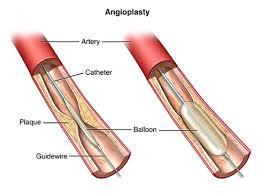
Dr Manish Juneja, best cardiologist in Nagpur. He has done 5091+ angioplasty.
Read More: Angioplasty in Nagpur
Coronary angioplasty, or percutaneous coronary intervention (PCI), is a non-surgical procedure that opens blocked heart arteries to improve blood flow. Heart specialists in Nagpur are capable of treating the same with utmost precision and expertise, making it particularly safe to have heart problems treated in Nagpur. A balloon-tipped catheter is threaded through the vessel at the site of damage, and then inflated to widen that section of the artery so blood can flow more easily. Sometimes, a stent is placed to keep the artery open and prevent additional blockages. Advanced medical equipment and experienced cardiologists in Nagpur help these known patients to get excellent treatment for their coronary artery disease, which further helps improve the quality of life, and overall heart condition.
0 notes
Text
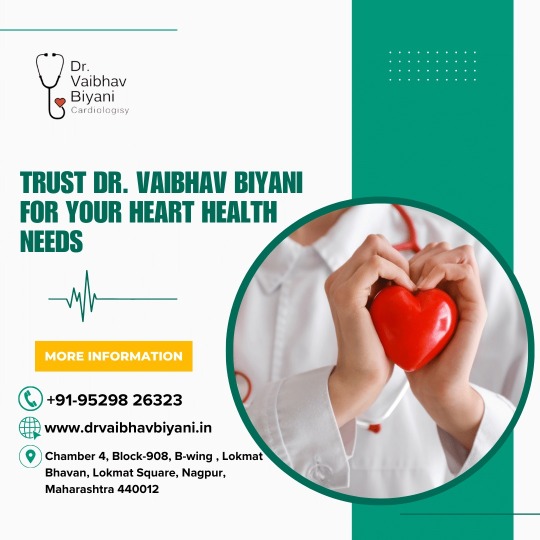
Dr. Vaibhav Biyani is renowned as the best cardiologist in Nagpur, offering comprehensive cardiac care with a focus on excellence and compassion. With state-of-the-art facilities and trusted expertise, Dr. Biyani provides specialized treatment plans tailored to each patient's needs. His commitment to personalized care, coupled with cutting-edge diagnostic services and advanced interventional procedures, ensures the highest level of cardiac care. Trust Dr. Vaibhav Biyani as your partner in heart wellness, dedicated to your well-being and cardiovascular health.
#cardiaccare#hearthealth#drvaibhavbiyani#nagpurcardiologist#cardiologist#heartwellness#expertcare#cardiohealth#patientcare#cardiacspecialist
0 notes
Text
What are the most common heart conditions treated by the best cardiologists in Nagpur?

The best cardiologists in Nagpur are equipped to diagnose and treat a wide range of heart conditions. Some of the most common heart conditions they address include:
Coronary Artery Disease (CAD): This condition occurs when the blood vessels supplying the heart (coronary arteries) become narrowed or blocked due to plaque buildup. Cardiologists use various interventions such as medication, lifestyle changes, angioplasty, stenting, or coronary artery bypass grafting (CABG) to manage CAD.
Hypertension (High Blood Pressure): Elevated blood pressure can strain the heart and blood vessels, leading to heart disease, stroke, and other complications. Cardiologists assess the severity of hypertension and develop treatment plans involving medications, lifestyle modifications, and monitoring.
Heart Failure: Also known as congestive heart failure, this condition occurs when the heart cannot pump blood effectively, leading to fluid buildup in the lungs and other organs. Cardiologists manage heart failure with medications, lifestyle changes, heart rhythm management, and in advanced cases, devices like pacemakers or implantable cardioverter-defibrillators (ICDs).
Arrhythmias: These are irregular heart rhythms that can cause palpitations, dizziness, fainting, or chest discomfort. Cardiologists specialize in diagnosing and treating arrhythmias using medications, electrical cardioversion, catheter ablation, or implantable devices like pacemakers and ICDs.
Valvular Heart Disease: This includes conditions such as aortic stenosis, mitral regurgitation, and other valve abnormalities that affect blood flow within the heart. Cardiologists may recommend medication, valve repair or replacement surgeries, or minimally invasive procedures like transcatheter valve interventions.
These are just a few examples of the heart conditions commonly treated by the best cardiologists in Nagpur. Their expertise, coupled with advanced diagnostic tools and treatment modalities, allows them to provide comprehensive cardiac care tailored to each patient's needs.
0 notes